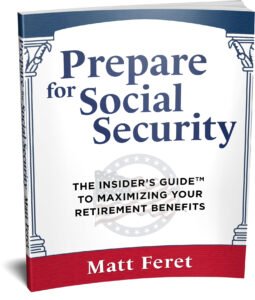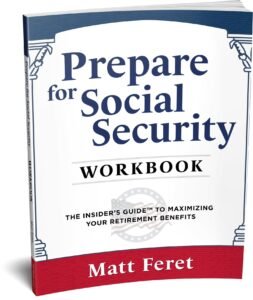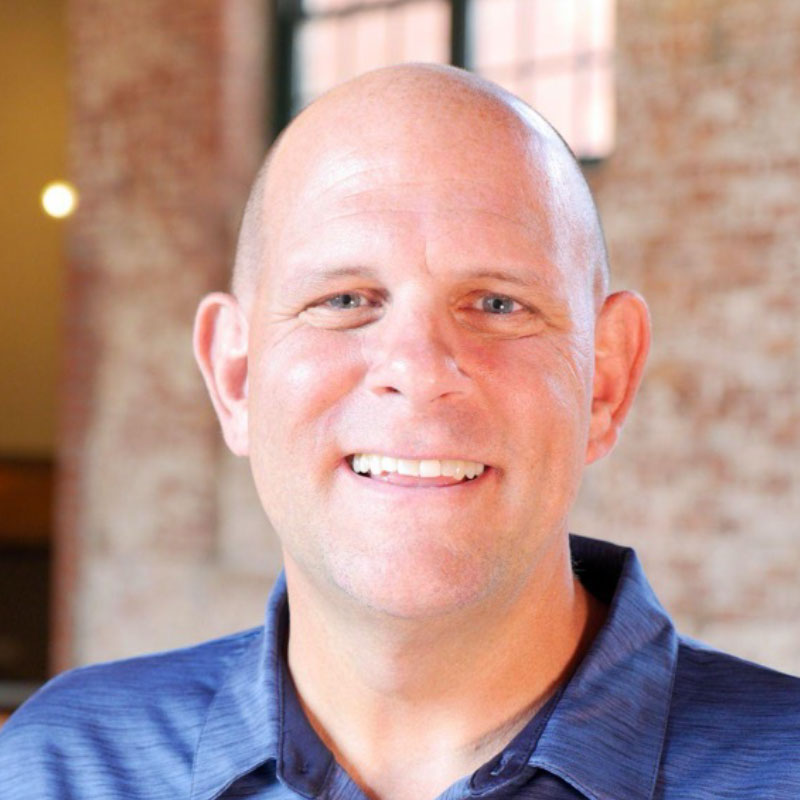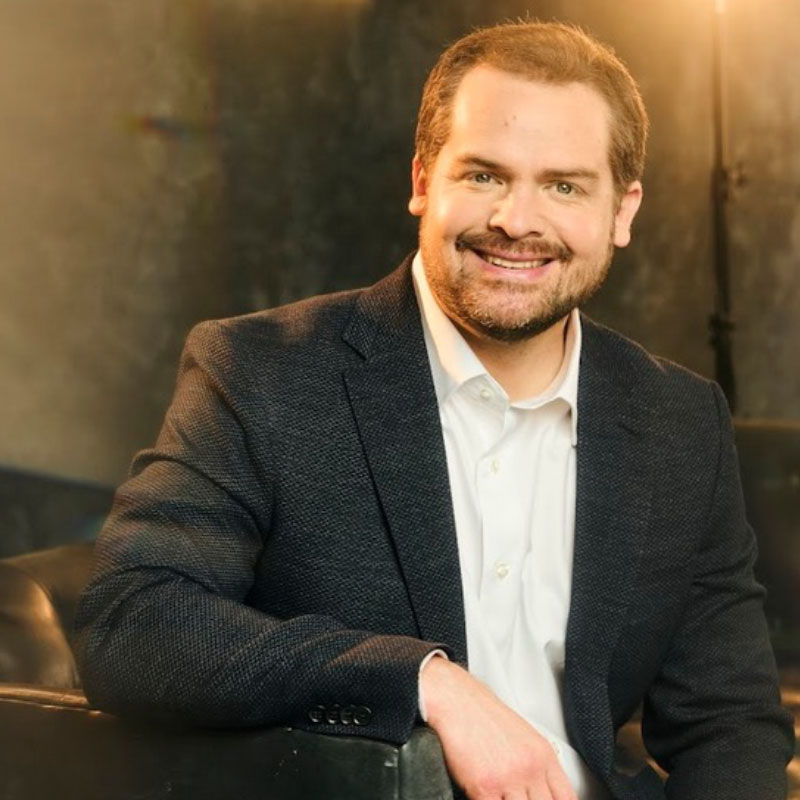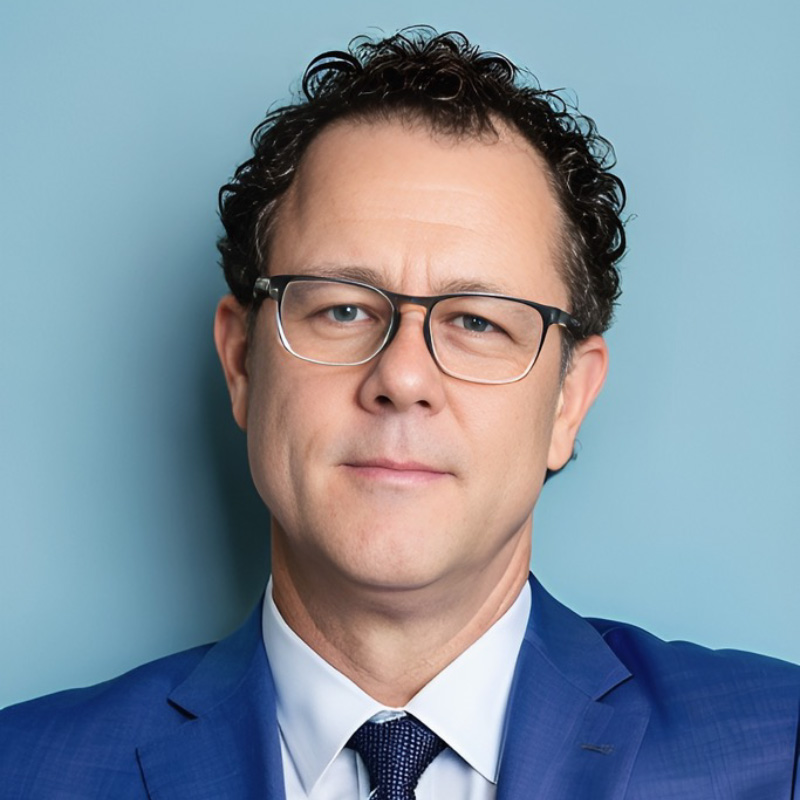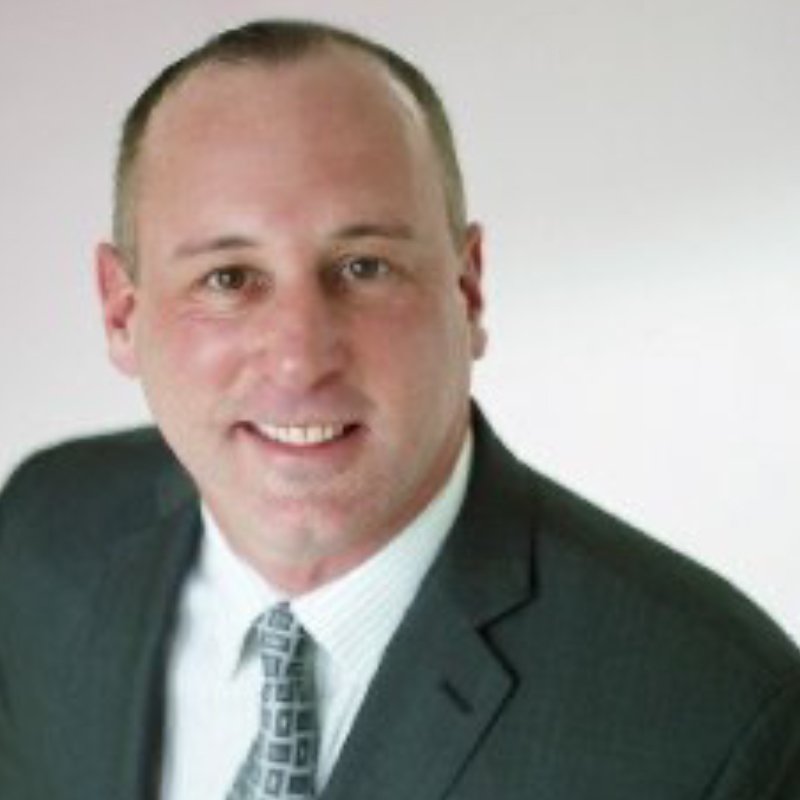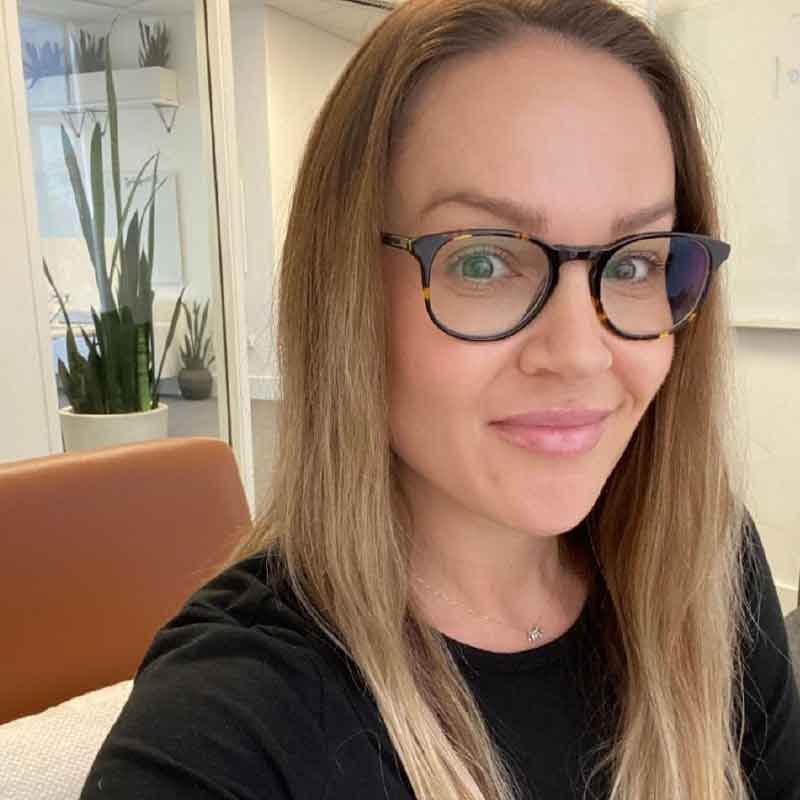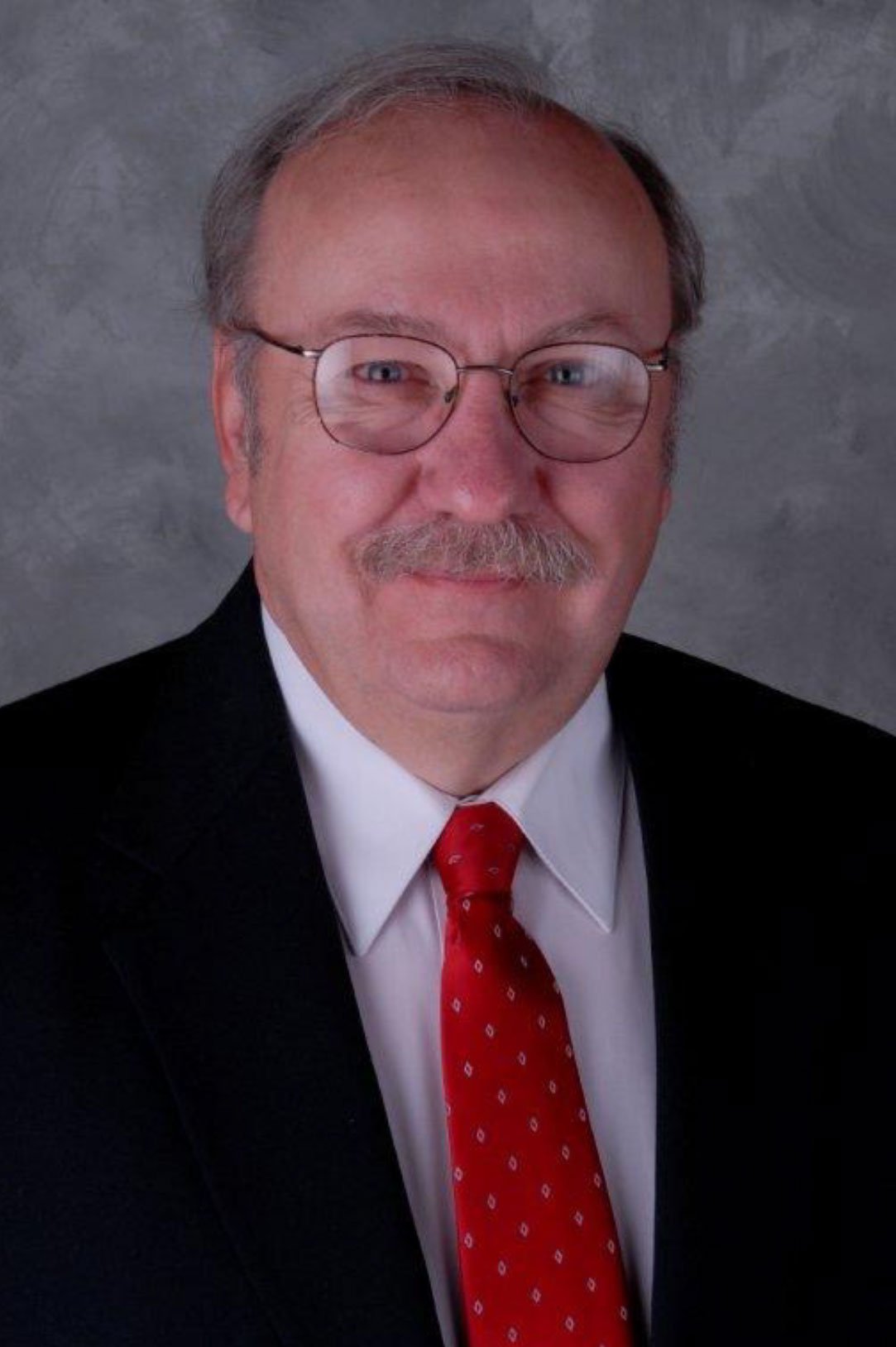#064
Share This:

In this episode of The Matt Feret Show, I interview Kelly Mendenhall, an author, artist, speaker, and advocate raising awareness about medical gaslighting and navigating life as a spine patient. Kelly shares her personal experience of dealing with chronic pain, medical gaslighting, and the challenges of finding the right medical care. She emphasizes the importance of advocating for oneself, being transparent with doctors about symptoms, and finding ways to make the world work for your body. Kelly also discusses the role of caregivers and the need for support and understanding in their journey. She highlights the complexities of the Social Security disability system and the importance of seeking legal assistance when applying for disability benefits.
If you enjoyed this episode of The Matt Feret Show, you may enjoy:
From Stroke to Strength: How Jo Ann Glim Found Wellness and Wealth in Recovery
Unpacking Gender Bias in Healthcare, and How Women Can Overcome It with Author Susan Salenger
Caregiver Burnout: Prioritizing Self-Care with LCSW Iris Waichler
Listen to the episode on Apple Podcasts, Spotify, Deezer, Podcast Addict, Stitcher, Google Podcasts, Amazon Music, Alexa Flash Briefing, iHeart, Acast or on your favorite podcast platform. You can watch the interview on YouTube here.
Brought to you by Prepare for Medicare – The Insider’s Guide book series. Sign up for the Prepare for Medicare Newsletter, an exclusive subscription-only newsletter that delivers the inside scoop to help you stay up-to-date with your Medicare insurance coverage, highlight Medicare news you can use, and reminders for important dates throughout the year. When you sign up, you’ll immediately gain access to seven FREE Medicare checklists.
Quotes:
“I tell people that they have to learn to speak up and stand firm in their truth. If you know that your truth is that you're experiencing pain or numbness in your extremities, if you're experiencing anything, if that is your experience, stand firm in your truth. Don't allow anyone to tell you that because they can't see it.”
Patient-doctor relationships should be partnerships, not authoritarian dictatorships, because again, doctors know the human body, but we know our body. Try talking to your doctor plainly and saying, okay, I understand that you're telling me that nothing is showing up on this test, but I need you to understand I'm still experiencing these very real symptoms and it's having a very real impact on my life. I get that I'm a complicated case, but can we try and work together to figure this out?”
“You have to grieve the things that you thought you'd be able to do or the things that you were able to do that you're not able to do anymore. But get creative and find the ways to make the world work for you instead of you always trying to make your body work for the world. Try to find ways to make the world work for your body because it will improve your quality of life.”
#064
Selected Link from the Episode:
Host’s Links:
All Things Medicare: prepareformedicare.com
Decoding Social Security: prepareforsocialsecurity.com
My Written Works on Amazon: www.amazon.com/stores/Matt-Feret/author/B09FM3L4WW
The Matt Feret Show YouTube: www.youtube.com/@themattferetshow
Network with me on LinkedIn: http://www.linkedin.com/in/mattferet
Follow me on X: twitter.com/feret_matt
See behind the scenes on Instagram: www.instagram.com/matt_feret/
Join our community on Facebook: www.facebook.com/themattferetshow/
Guest’s Links:
Facebook Support Group/Community: https://www.facebook.com/groups/chroniccraftersunite
Facebook page: https://www.facebook.com/KellyJMendenhall
Instagram: https://www.instagram.com/kellyjmendenhall/
TikTok: https://www.tiktok.com/@authorkellyjmendenhall
YouTube: https://www.youtube.com/@Kellyjmendenhall/
Website: https://kellyjmendenhall.com/
Full Show Transcript:
Announcer:
This episode of The Matt Feret Show is brought to you by the Brickhouse Agency. Brickhouse is a boutique independent health insurance agency that focuses on finding the right Medicare coverage for folks across the country. Matt's wife, Niki, is the heart behind Brickhouse. She's great at making confusing things clear and is passionate about helping people find a Medicare insurance policy that suits their individual needs. To schedule a free one-on-one appointment with Niki or a member of her team, head on over to brickhouseagency.com or simply call (844-844-6565), and someone will help you schedule a phone call or a Zoom meeting. The consultation is free because the insurance companies pay Brickhouse, not you. There's never any pressure or obligation to enroll. Your clearer, simpler Medicare journey is just a call or click away. brickhouse agency.com. Not affiliated with or endorsed by the government or federal Medicare program. Contacting Brickhouse Agency LLC will direct you to a licensed insurance agent.
Introduction by Matt Feret [01:09]
Matt Feret:
Hello everyone. This is Matt Feret, author of Prepare for Medicare and Prepare for Social Security Insiders, guidebooks, and online course training series. Welcome to another episode of The Matt Feret Show, where I interview insiders and experts to help light a path to successful living in midlife retirement and beyond. Kelly, welcome to the show.
Kelly Mendenhall:
Thank you. It's good to be here.
Matt Feret:
Tell us what you do, and how long you've been doing it, and how you help people.
Kelly Mendenhall:
I am an author, artist, speaker, and activist and advocate raising awareness about medical gaslighting, especially as concerns women. It happens to men and women, but statistically it happens to women more often. So I focus on that and I help other people navigate the really scary world of being a spine patient, especially if you're completely unfamiliar with the medical world. When you become a spine patient, it's hard to find good information and it's hard to find information that makes sense and isn't too confusing, and then it's even harder to find information about how to live with certain diagnoses and chronic pain. So that's what I do. I blog and I write as a medical journalist freelance, and I do public speaking engagements. I was the keynote speaker at Disability Awareness Day this year in Grand Rapids, Michigan. And my mission is to spread more love and joy to disabled persons everywhere, especially those of us with invisible disabilities through the written word and lovingly handcrafted items.
And I focus specifically on handcrafted items because hand stitching is so therapeutic for things like chronic pain and mental health. And I have incorporated hand stitching into my survival for the last seven years through four neurosurgeries, two abdominal surgeries, a hysterectomy. Now I have adjacent segment disease. I mean, treatment is still ongoing and hand stitching and hand sewing and embroidery are how I have survived and coped so well with everything that I have. And I want to help more people, especially my age and younger gain exposure to that because I think a lot of people my age and younger have not been exposed at all to folk art or traditional hand stitching. And so a lot of people aren't aware of how easy it can be or how accessible it is, or what a great hobby it can be for someone who has weightlifting restrictions and things like that. So that's a little bit of what I do and why, and I hope to help everyone living with chronic pain and invisible disabilities feel less alone and less alienated. But again, my advocacy work does focus a lot on women because of medical gaslighting.
Kelly Mendenhall’s Story with Disability [04:23]
Matt Feret:
Tell everybody how this all started. When did this all start? How did this even begin?
Kelly Mendenhall:
Because I lost my mobility without any warning. In June of 2017, I went from being a person who worked full-time in nonprofit and having some aches and pains and being a regular user of ibuprofen in a span of a couple months. I went from that thinking I was like normal aches and pains to not being able to walk in a matter of a couple months. And I lost all range of motion in my legs because of my low back. And what turned out to have happened was that I had a ruptured disc in my thoracic spine.
Matt Feret:
I don't know where this thoracic spine is.
Kelly Mendenhall:
Okay. So I was like, I don't want to be seem condescending or people don't know. But your thoracic spine is the part of your spine that holds in all of your organs. It's the only part of your spine that doesn't move. So your ribs, everything caring for your heart, all of that, it's all packed into your thoracic spine. And for me, it's very rare to have a spinal disc rupture in the thoracic spine, but I am that unicorn. And so I had a disc rupture right under my bottom rib, but because of the medical gas lighting and doctors not believing my symptoms, I spent two and a half years with this rupture growing into a mass and it crushed and deformed my spinal cord. So I was losing use of my arms and legs. Yeah, imagine I was 34 at the time, I think when this all started. My birthday's tomorrow-
Matt Feret:
Happy birthday.
Kelly Mendenhall:
Thank you. So yeah, I was 34, 35 when this all started. And not being able to use your arms and legs, not recognizing your own handwriting, all of these things were happening to me, but it took two and a half years to get to the right doctors who believed me. So it took two and a half years to get to doctors who believed me and looked for what was causing the symptoms that I'd been describing. And I'll never forget, it was June of 2019. I was in a neurologist's office and he gave me the field sobriety test like they give to drunk drivers or suspected drunk drivers. I couldn't pass it. I was stone cold sober, but I couldn't pass it because my neurological signals were so screwed up that if I closed my eyes and tried to touch my nose, I was touching my eyeball, all kinds of things when I was trying to walk, if I tried to walk with one foot in front of the other, I mean my neurological system was just crashed, so I would just start to fall over and lose my balance. I had a seven and a half hour surgery that they fused from. So you have 12 vertebrae in your thoracic spine, and then below that your low back is your lumbar spine. So my fusion goes from the 10th vertebrae and my thoracic spine down to the second vertebrae of my lumbar spine, which is not ideal. Doctors don't like to operate on that section of your spine unless it's removing a cancerous tumor or in my case, something that's really an emergency. I'm losing use of my limbs.
It's not an area of the body they want to have to operate on because again, it's holding, protecting all of your organs, and that's the one part of your spine that's not supposed to move. So it can be really dangerous and complicated to operate on it. Thankfully, I had an amazing surgeon and I think I was given 25% odds or something like that.
Matt Feret:
25% odds?
Kelly Mendenhall:
That I would find relief after surgery and then I would be able to regain use of everything. And I did. I was determined as hell. And I, so I had the big thoracic fusion in October of 2019, and in March of 2019, I was pushing a hundred plus pound sled across my physical therapist's office because I don't like to give up easily. I'm pretty stubborn about things.
Matt Feret:
So would you say March 2020 was when you were doing that?
Kelly Mendenhall:
Yep, March 2020, and then I still had two more surgeries to go. So from December of 2018 to October of 2020, I had four neurosurgeries into abdominal surgeries, including a hysterectomy, and then promptly had a mental breakdown.
Matt Feret:
Oh my gosh.
Kelly Mendenhall:
Which I'm sure isn't super surprising, and that's what I try to explain to people. The human body is an amazing machine. It's a lot of trauma to put the body under to go under anesthesia. Even I didn't understand this until someone explained it to me, but they said, okay, so if you're being put under general anesthesia, that's like a minor brain injury and it takes about six months for that to heal. And I'm like six months, but I had six surgeries in two years and I was put on general anesthesia for a long time and she said, yeah, your body and your mind are tired. Your brain is tired. So I took a couple of years to recuperate from January of 2021 until this last holiday season, I was kind of just in hunkered down self-protection, recovery and recuperation mode. And because the other facet of this, because I'm young and this all started when I was young, and chronic pain is so subjective and everyone experiences it differently. I was labeled a lot, I think as a drug seeker, especially because of my visible tattoos. So it was easy for people to form judgments about what type of person I might be or what my motives might be. And a lot of times I think people thought drug seeking. I was young, I'm six feet tall, I'm covered in tattoos. It's not the first time I've dealt with it. It's just the first time it was like life or death or paralyzing yourself or not situation.
Kelly Mendenhall on Defining and Discussing Medical Gaslighting [11:44]
Matt Feret:
Is that what you mean by the phrase medical gaslighting?
Kelly Mendenhall:
Yeah. So medical gaslighting is a term that I started writing about in 2018 when I started reading all these clinical studies. I knew I couldn't be the only person experiencing doctors telling me your symptoms aren't real, but I didn't think that would be such a massive problem. But I'm a political scientist, that's what I went to school for. And I have a master's in public administration and I've done a lot of data collection and analysis. And so my social scientist brain was like, okay, who else is this happening to? Why is it happening and how can we stop it? And medical gaslighting, if you think about gaslighting in relationships, like a romantic relationship, someone might be saying or doing mean things, and then when you call them on it, they're like, what are you talking about? I didn't say that, or that's not how I meant it. And they're kind of trying to make you feel crazy or you're the one who's misperceiving everything. With medical gaslighting, it's more succinct than that.
It's literally about a patient is experiencing symptoms, they're telling those symptoms, and they're experience to their physicians or other medical professionals, and then those medical professionals are saying, that's not possible. You can't be feeling these things because I don't see it on your scans. I don't see it in the MRIs. I don't see it in the X-rays. I don't see it in the CT’s. Western medicine is very objective. All of our tests and labs and all the things we depend on to make sense of what's going on with patients, it's very, very objective. And you're looking, they do blood labs and all these different things that are kind of standard operating procedure, but the problem, again, like I said, is chronic pain is subjective and spinal nerve pain, whatever parts of your spine are affected. These are all different. And so I like to say that doctors know the human body, but we know our body, so we have to be good at being advocates for ourselves and saying to the doctors, I understand that it might not make sense to you. I understand that you might not be seeing anything on my scans, but I am living these very real symptoms and I need to address these very real symptoms so that I can have better quality of life for me.
Matt Feret:
So, you said earlier you spent two and a half years in pain and then was, you said it's because you got tattoos and they thought you were seeking out oxygen or whatever or was that two and a half years of pain and frustration and, no, I'm not drug seeking. I mean, you have to defend yourself.
Kelly Mendenhall:
Oh, yeah. Oh, constantly. I would have to call people out and say, “Hey, I know I look to you. I probably do drugs, but I don't do drugs.” And I would call it, I would just call it flat on its face because if you don't confront it, if you don't say anything, then that stereotype and that unspoken skepticism or whatever is still in the room and it's going to build a wall between you and the medical professional. It did for me several times. The other thing that I faced was, so I would get the assumptions about drug seeking and the nurses with fun little comments, where else are you going to get your drugs? Stuff like that. Yeah, so I called it on its face a lot. And I would say, I know I probably look to you. I do drugs, but I don't do drugs.
This is what I'm experiencing and this is how it's impacting my quality of life. My pain was so bad that a lot of times I couldn't make it through an appointment without crying because the waiting room was so painful to be in. I had parts of my spine being crushed. Parts of my spine were twisted and turned in ways that it wasn't supposed to be. There were so much happening. So imagine sitting, why do doctor's offices have the worst furniture? You're seeing sick hurt people. And so by the time I would go through sitting in the waiting room in the uncomfortable furniture and waiting to get in to see the specialist, I would be in tears and I would tell them my pain was already at an eight or a 10 because it was, I mean, don't know how I, I managed to function through some of that pain because it was otherworldly, and then my left leg would randomly fall out from under me at times and just stop working.
And my left side was a lot harder to control than my right side throughout the whole thing. It still kind of is, and I'd have to focus really hard. So people are always like, what did you do to survive all that? And how did you, well, I got really determined for one and angry at the same time. I was fighting all of these doctors for answers, losing my mobility. I can't work all of a sudden. I mean, my whole life is flipped on its axis like that. And I would say to doctors, do you think that I went to school, that I put myself through college and grad school and went through all the trouble of getting a master's degree because I don't feel like, because that was the other assumption was that you're lazy and you just don't want to work. That was the attitude that there's no reason you can't work.
I would have doctors say, well, I'm not going to sign a work release for you. There's no reason you can't work the MR. I says, you're fine. Meanwhile, I've got tears pouring down my face and I'm in so much pain. I'm telling them the pain is making me suicidal and they're still not believing me. So I got really determined and really pissed off, and I just thought, they're not going to take me out. I am from Flint, Michigan. I've survived being raised in one of the most horrible high crime, high murder places in the country. I am from Flint, Michigan. I am the daughter of Vikings. I will do this and I'm not going to let them going to let them kill me, and I'm not going to let them paralyze me. And so I went and signed up for water aerobics. I had done eight or 10 months of physical therapy, but it hadn't helped me at all for obvious reasons now. So I went and hired a rehabilitative personal trainer and started doing water aerobics. And the whole time that I was fighting to find out what was wrong with me, I was moving. I just kept moving because if I stopped moving, my body would atrophy and the pain would just get worse and worse. So I had to force myself through all the pain to get up and go work out every day and just keep trying.
Matt Feret:
So you had to find your own solution, at least your own solution that would keep you functioning while you went through doctor, after doctor, after doctor to finally find someone that could help you.
Kelly Mendenhall:
And I remember one guy saying, well, you need pain management. And I said, well, what does that look like? And he said, well, I would send you to physical therapy for six weeks and put you on something like oxycodone. And I said, that's not a treatment plan. And he said, excuse me. And I said, I am 30. I was like, I am at my thirties. I'm not 80. You're not going to stick me on oxycodone and send me on my way to never figure out why this is happening. And that was a big thing. I was really determined not to take the narcotic and opioid pain meds because I didn't want to mask symptoms. I wanted to figure out what was wrong and fix it. And that is so foreign to so much of the medical system.
Matt Feret:
Kelly, that's so foreign to most people. I mean, if my doctors are telling me there's nothing wrong with you, even though I'm thinking it and they're like, well, here's a treatment plan. I mean, I'm with you. I don't want to get on oxycodone or anything like that. That's the last thing I need in my life is some sort of a prescription pill addiction. But you advocated for yourself. Is that because you got angry or did you educate yourself or you were, I mean, most people will just follow doctor's orders. I mean, that's a phrase for a reason, right? Follow doctor's orders.
Kelly Mendenhall:
I've talked about that with people because I realized that for me, I grew up very blue collar and the people of authority were police officers, lawyers, doctors, teachers, and then for a lot of people, there's a religious element. We were heathens. We didn't go to church when I was grown up. So for us, it was those main things and you didn't question that authority. You're taught these people are authority figures for a reason, and they're respected authority figures and you don't question them. And so at first, I didn't question them because I was like, okay, maybe I am crazy. I mean, you start gaslighting yourself. Maybe I can just get up and go to work, and then you try and walk and fall over and you're like, okay, they're wrong. I'm still right. But it was, it's a huge mind game and I really don't have a way to tell anybody why I did it, except I did. I got mad and then I thought, if I am having this much trouble getting care and services and in Tennessee, they don't participate in Medicaid or anything, so when I became unable to work, I was dead in the water. In Tennessee, they don't participate in Medicaid, so I still had to try and figure out ways to pay for insurance even though I couldn't work and I was disabled.
There's just not a lot of the social benefits that exist in other places. I'm from Michigan, I live back in Michigan now. Medicaid is here. They have snap benefits for people. Even if you don't have children, it's very different in Tennessee, if you don't have kids, I always say if you're disabled and you don't have kids, Tennessee is where you go to die because they just don't have services. And I think I was born an activist and a person who can't shut up when she sees something wrong. They say, you're supposed to see if you see something, do something, I'm the one who can't help it. I can't stop myself because I get mad not only for myself, but for all the other people experiencing it. And those other people don't have the benefit that I do of my educational background and studying the political and legal and medical systems here in America.
They don't know. They've never had to advocate maybe for themselves or someone else. But I worked a nonprofit and I advocated for people every day of my life. So I knew how to access resources like financial assistance through hospitals. I mean, I hadn't been able to access all the resources I did and figure all my, if I wasn't who I am and couldn't figure all that out, I would've been screwed. And I don't think I would've made it through it. The pain was so bad that I was suicidal every day for over a year, I mean every day of my life. And I remember clearly sobbing on the phone with my mom and my best friend and just being like, I don't want to die, but I don't want to live the rest of my life like this, and nobody can tell me why this is happening to me.
And I think exercising and getting that personal trainer, doing those things helped me to feel empowered enough that I could keep going and fighting against more people. I mean, it's not easy. I don't tell my story or share information with people in any way to imply that it's easy or that it should be like this. Even my current specialist who's helping me because I have collapsed discs in my low back now below the fusion recently I was supposed, this is just a little nugget of what it's like to live this life and live with chronic pain and disabilities that no one can see.
So I had a spinal fusion. It went great, got used to my arms and legs back. I've been doing really good. That's awesome. But side effects of spinal fusion surgeries is that you start to have what's called adjacent segment disease in the areas around the fusion, and so it can deteriorate the rest of your spine. Well, mine was already incredibly degenerated and I didn't have a choice. I knew this would happen someday, and I was just like, I'm going to have to deal with it when I deal with it because it's what I got to do. And so what happens is the levels below my fusion are starting to collapse and degenerate, and so that means that nerves are being pinched, and it's been very, very, it's happened all over again.
And that's hard because there's medical trauma too. People don't talk about medical trauma or medicalized trauma. I was supposed to have a procedure on July 19th that was, it's a radio frequency, nerve ablation. So they're going to go in, I have no idea what that means. They're in with hollow needles and put them in my spine in my back where the nerves are being pinched and compressed and inflamed. Then inside that hollow needle, they're going to put another skinnier needle down, and on the end of that skinnier needle that's going in, there is a little apparatus to burn your nerves off, but they're using radio frequency to do it. So it's crazy science magic. Yeah. So I was supposed to get that done to give, and in order to get this done, you have to get a test done twice to make sure it'll work. So you have to go in and for two times before you can get this done, you go in and they put a temporary nerve block in your spine, and then for eight hours you have to journal how good you feel and what the results are.
And then after eight hours it wears off and you're right back to the pain that you were in before. It's so torturous, so much fun. And so I go through the two tests and then I get there, I kid you not the morning of my procedure, Medicare declines the procedure and they send information to, so basically there are these new regulations that went into effect on July 1st only for disabled adults living with low back pain. Specifically, there are new rules where we need new prior authorization for different procedures, but also they said, well, there's new paperwork that the patient needs to fill out. The paperwork was a 10 page survey, quality of life survey. That's what they canceled my procedure for. So I get the survey filled out, the doctor refills out paperwork, and now I'm supposed to get the procedure on August 11th. Well, I get a letter the other day saying Medicare gave me a provisional, it was a provisional authorization, and it basically says, we're not giving you full authorization, but we're giving you provisional authorization, which means that if you get this procedure done, it should be covered by Medicare. We believe that we'll cover it, but go ahead and have the procedure and find out.
Matt Feret:
I'm going to guess this is probably not a $14 procedure.
Kelly Mendenhall:
Oh, no, no, no, no. If Medicare screws me this time, my only choice is to, it's like a $5,000 procedure, $5,500. However, again, this is where my experience comes in and other people, this is why I try and help other people and educate people on this. I called the billing office right away and talked to them and was like, okay, I'm on disability, so my whole income every month is $1,252 and y'all want $5,000 for this injection and I can't hardly walk right now, so can we figure this out please? And she immediately sent me paperwork for the patient financial assistance application and put it on my chart so that people would see that it was there. And I sent in all my authorization paperwork. You send in things like bank statements and proof of income and things like that, and when you need financial assistance, the hospitals have whole foundations attached to them that will pay medical bills for people who need it. But if you don't know the system and you don't know to seek out those funds and apply for them, then you end up in so many Americans with these huge amounts of medical debt that you can never crawl out from under. And so I guess what drives me is just how can I keep all that to myself when other people are suffering? It doesn't feel like an option to me.
Matt Feret:
I was going to say, you've had this multiple year, just, it's almost like a case study of your phrase, which I like, “medical gaslighting.” And then running through the US healthcare system in terms of who pays for it, right? Medicare, insurance company, disability, and two and a half years of non-fixed care due to a bunch of different things. So where do people start when they start running into these things? What's your advice? You're trying to help people not have this what, 6, 7, 8-year timeframe of start to finish and somehow to condense it. So other than getting on the internet and typing in a search phrase and being completely overwhelmed and scared, I mean, you type in, my toe hurts and all of a sudden the second thing you see-
Kelly Mendenhall:
I know you're dying. You're dying.
Kelly Mendenhall’s Advice for the Newly Disabled [32:01]
Matt Feret:
Where do people start? So what do you tell people to do when what doctor says is what I should do? When you're running into these obstacles, at least in the very onset, what do you tell people to do?
Kelly Mendenhall:
I tell people that they have to learn to speak up and stand firm in their truth. If you know that your truth is that you're experiencing pain or numbness your extremities or any kind of anything, if you're experiencing anything, if that is your experience, stand firm in your truth, don't allow anyone to tell you that because they can't see it. It's not there. Calling medical professionals out I think helps on stereotypes or just saying, I get that. I have a complicated case. Doctors, I think a lot of doctors don't like to not know the answers. And that's what we have to remember is that we're not just dealing with human beings, we're dealing with egos. We all have them, right? Doctors just have kind of like some doctors have an especially big ego and they don't like to say, I don't know, or I can't figure this out.
So instead, if a patient is reporting stuff to them and they can't see it or find proof of it, then they're like, well, if I can't see it, it isn't there. Call them on that and just say, I get that. It's a complicated case because that's what saved my life honestly, is one doctor finally said to me 11 months into the journey, he said, I believe you. Your pain is real. You're a complicated case, but you're not an impossible case. If you promise not to give up, I won't give up. And that made me feel like I had someone fighting with me instead of against me.
Patient-doctor relationships should be partnerships, not authoritarian dictatorships, because again, doctors know the human body, but we know our body. If you try talking to your doctor plainly and saying, okay, I understand that you're telling me that nothing is showing up on this test and nothing is showing up on this test, but I need you to understand I'm still experiencing these very real symptoms and it's having a very real impact on my life. So I get that I'm a complicated case, but can we try and work together to figure this out? A lot of times if you just, I have found, if you just approach those uncomfortable topics and call them out for what they are, instead of letting there be the awkward elephant in the room or whatever, it's easier for the patient and the medical professionals to all kind of take a breath and let it out and be like, man, this really is hard, but let's figure it out together. Fire doctors if you have to.
Matt Feret:
Alright, so you've got two and a half years until a diagnosis and a procedure that could help you with that could help you with this. And you went through how many doctors and is your advice to have these conversations with doctors right up front or do you. So did you fire doctors how to do that or I don't know. I think there's probably a lot of people out there, including myself, that if I had a situation like this and I have actually had a, not anywhere near as yours, but a medical situation where I went to six, went to six doctors, and finally the last two kind of combined and were like, alright, it is tough. Here's what I think this is. But the first four we're, yeah, here's how to fix it and it didn't work. And they're like, well, then you just might have to live with it.
Do you have to go through those four or, because I just went back to the provider book, you just went back to the book and said, all right, well I'll find this doctor. And then I went online and was like, who is the best doctor in blank? And then whatever the computer spit out, I made a call. So what are the other options? How aggressive and upfront should it be so that people aren't waiting 11 months or in your case two and a half years to get solutions, like real solutions? How do people handle that? In hindsight, how would you do it differently?
Kelly Mendenhall:
I think, well, I hate to say this, but I think one of the things that got in my way was that I was honest about my mental health. My doctor said to me recently, he said, you have to know how to game the system. And he said, it shouldn't be like that. I don't want it to be like that, but there it is.
Matt Feret:
So when you say honest about your mental health, you don't need to obviously disclose anything you don't want to, but-
Kelly Mendenhall:
No, no. I'm a totally open book about this stuff. So I live with generalized anxiety disorder, major depressive disorder and complex post-traumatic stress disorder complex. Post-traumatic stress disorder is different than when we usually think of PTSD. We think of it happening from an instance of combat or an accident of some kind, like one main event. For complex PTSD, it means that you have many events or an event that was strung out for a really long time. So, I already had C-PTSD before my medicalized trauma and all that started, and I was honest with them about the pain making me so miserable that I wanted to die. I was honest about being suicidal and feeling hopeless, and I think it made it easier for them to write me off as a hysterical woman. Women and men are treated very differently and all the research I've done, I mean you wouldn't believe it.
Men get pain meds 60 minutes faster on average at an emergency room. It starts from the very to the most complicated things. It's easier to get treatment as a man, especially for chronic pain. Part of that is because of the uterus, because the word uterus is rooted in the word utero, which means hysteria. And so from the beginning of time, women have been treated like we're hysterical because we have a uterus, and that's just a pervasive attitude that has continued going on. And so when I admitted to them that I was suicidal and depressed and all this, I think they just wrote me off as a hysterical woman. Well, she's not drug seeking for pain, but maybe she's just hysterical. It became the easy assumption to make.
Matt Feret:
These are all male doctors or combination?
Kelly Mendenhall:
I had one female doctor and one female PA and the rest of them were men. And it was orthopedic neurosurgeons, regular orthos surgeons, pain management doctors. I mean, it was all kinds. You don't have to have a big confrontation and fire your doctor if you don't want to see your doctor anymore, if they're not helping you, all you have to do is just stop going. You don't even have to say to them, you're not being a good doctor to me if you don't want to, to advocate for yourself and others. I absolutely encourage it. I wrote a very long strongly worded letter to my previous primary care physician after we got the images of the mass in my spine. And because he used to tell me he couldn't appreciate a difference in my symptoms or he couldn't see anything wrong, and so I sent pictures of my spinal cord being smooshed and said, can you appreciate the importance of that now? But you don't have to do that. It doesn't have to be a confrontation. You can just simply say, my current doctor, I don't feel like we're good partners in my health, so I decided to try a new doctor.
Matt Feret:
Does that give off warning bells to new doctors? Like second, third, fourth opinion. Do you think it does or not?
Kelly Mendenhall:
It depends on the doctor. That's the thing. There's no standard for how all doctors are going to respond to anything. And I had a pain management doctor who saved my life and then I sent a friend to him and she felt like he was gaslighting her. So everybody's different and everybody responds differently, but I'm a naturally really open person and I'm a really honest and transparent person, and maybe my therapist says there's no such thing, but I might over communicate. I'm that person that's like, I'm going to put every bit of information out there that might help, rather than giving bits and pieces at once. I'm going to give you every bit of information that might help and then let you decide what you do with that information.
Matt Feret:
But you said that scared some or that may have scared some folks off.
Kelly Mendenhall:
Oh yeah, and that's the thing. That's why I say there's no standard, but I truly believe, I do believe that most doctors have good intentions and they really want to help patients. In hindsight, if I would've had those awkward conversations sooner or said to them, this is not, I wish I would've known to say this hopelessness I'm experiencing is not the hopelessness I live with every day. Yes, I have major depressive disorder, but I am a happy person who loves life and has a lot of ambitions. I wish I would've known to say that, to say them like, please don't box me in because of my mental health diagnoses. See the whole picture context, see the whole patient.
Matt Feret:
Yeah. Context, it sounds like.
Kelly Mendenhall:
Yeah, yeah. Don't just look at my tattoos. Don't just look at my age. Don't just look at my mental health diagnoses. Look at the whole picture. And again, would someone put themselves through college and grad school just so that they could then scam the system and get free money? It's not that much money. $1,252 a month is not that much money. If somebody's out there thinking, I'm going to get me some Social Security Disability, this is not your gravy train.
Kelly Mendenhall’s Advice for Caregivers of Disabled Adults [43:45]
Matt Feret:
No, that's not a way to live. Especially at your age as well. So we haven't talked about this yet, but I want to get to it. Caregiving and the caregiver component now, when normally people think of the word caregiving, they think about taking care of mom or dad or grandma or grandpa, but that's probably not the case with you. You've got a partner. And being a caregiver, I assume he is around your age.
Kelly Mendenhall:
He is. We're six months apart.
Matt Feret:
He's your age. What was that like, and what would be your advice for caregivers in their thirties and early forties that are in no way A. anticipating this, and B. prepared for it?
Kelly Mendenhall:
Oh, wow. Yeah, that's a really good question. First of all, I think for any caregiver listening, please know that secondary trauma is real, and when someone you love is experiencing really horrific pain or other medical issues and you're watching that person that you love, go through that. That is traumatic for the person. I mean, it's traumatic when you're going through it, but it's traumatic to watch the person you love go through it. And secondary trauma is a thing. There are a lot of support groups for caregivers. I think it's really important to have at least a person that you can talk to about what's going on besides the patient, because patients are already processing a myriad of very complicated emotions. For me, I've gone through feeling like a burden. That's the biggest thing, feeling like a burden a lot of us do. Feeling like a drain on the family, grieving or mourning the loss of your former self. I mean, that's been a long process. Having to grieve the pieces of myself that I've had to put down permanently. Jeff is really helpful with that. A good partner I think is going to be helpful with keeping a positive attitude.
I have to say all the time, it's a bad time in life, not a bad lifetime. I have to remind myself of that a lot, and I have to remind Jeff of that because it's hard for him. When he sees me crying in pain, it's hard for him not to feel an immense amount of pain and worry for me. So I definitely recommend a support group for caregivers. If you're looking for one, you might start with your community mental health organization or adult protective services or something like that. There are a lot of support groups. Facebook can be good and bad for support groups. Some support groups on Facebook are like, oh, this is the most positive place I've ever been. And some of them are like, I might not make it through tomorrow if I continue reading these posts. I mean, it's just some people can maintain a positive attitude in some people or a positive mindset and some people can't. For Jeff, I always tell him, talk to somebody. That's not me, because if I try and take on your emotions about my pain, at the same time as I'm dealing with my emotions and things about my pain, that's too much. I can't process for anybody else.
Jeff is a very loving, very, very loving partner. He's the most supportive person I've ever been with, which is a stark contrast to the first five years of my journey. I was in an abusive relationship that was very controlling and my illness became a benefit for him because he didn't have to worry about, he was one of those really insecure people. So it's like as long as I couldn't walk, he didn't have to worry where I was or worry where I was, but he had his emotions about what I was going through that were very different from my emotions, and it can be hard to manage other people's emotions along with our own when we're trying to survive this. Jeff, for me, the biggest things that he does that help me are he's never judgmental at all of anything I might need help with, which it is really hard at 41 to be like, honey, I can't tie my own shoes today. Can you please tie my shoes for me? It's not easy, but he always says that he doesn't look at all of my medical stuff as a handicap or a disability or something he has to deal with.
If you feel that way, you might not be cut out for a partnership with somebody who needs caretaking. I mean, I'm just being honest. It's bleak, but it doesn't just take a special person to make it through what I've made it through. It takes special people to support me through what I've been through, and I've done the hard work of it and surviving it and talking about it and raising awareness, but they've done the hard work of losing time with me for four years. I basically lived on a couch. If I wasn't at rehab, if I wasn't in the pool or with my trainer, I lived on the couch and I couldn't walk very much or sit up very much on any particular day.
That is not an easy thing to live through for anyone witnessing it or going through it. And it felt like it was forever. I mean, it felt like it took forever to get my life back. But if you feel resentful, if you're thinking things like, I can't believe I have to do this. I thought we were supposed to have two incomes and it was supposed to be like this. It's not like that anymore. So you either have to decide that you're going to show up and be the partner that your person needs you to be to survive, or you have to decide that you can't do that and walk away.
Matt Feret:
That's dark.
Kelly Mendenhall:
It is dark, and I don't mean to be a bummer, but it's only going to harm the patient more if they're dealing with someone that they can tell is resentful of them and resents having to take care of them. Or for me, I wasn't married. I've never been married, so no one was obligated by any vows or anything to me. And with one partner, it went really, really badly with Jeff. I mean, I'll tell you all a little secret. We've known each other since we were 13. We became reunited after 20 something years, so it's a little different with Jeff and I. We have a special bond.
Matt Feret:
I've got to imagine though, even for knowing you that long though, there's got to be an adjustment period, and those words like resentment and mourning of what his future vision was, it's probably a normal, at least at some point, a normal reaction. You've got this vision of being together.
Kelly Mendenhall:
Absolutely.
Matt Feret:
Like you said, dual income and a dog and two kids.
Kelly Mendenhall:
We’re going to go on vacations, we're going to have kids, we're going to have a TV. Yeah, we're going to have a house with the white picket fence and two and a half kids and the American dream. And yeah, there's a lot of grief and chronic illness in any kind of chronic invisible disability and things. There's a lot of grief, and you're right for a caregiver, and I had never thought about it from that perspective, but for a caregiver, you're grieving all of the dreams that you had for things you would do together that maybe you can't do together. Mourn the things you're losing because that's real. That is really real for me. I was giving up so much of my identity by not working because I had always been this social justice and nonprofit warrior, even when I was a kid, and a lot of my identity was wrapped up in what I thought I was able to contribute to the world. And so for a minute I was like, well, I can't do anything now. And then I was like, Kelly, you literally live in the future with the internet and social media. This is not, you're not a lost cause. You can still make stuff happen, but yeah, you do. You have to grieve the things that you thought you'd be able to do or the things that you were able to do that you're not able to do anymore. But get creative and find the ways to make the world work for you instead of you always trying to make your body work for the world. Try to find ways to make the world work for your body because it will improve your quality of life.
Don't fight needing things. If you hear nothing else. I say today, please hear me when I say you have suffered enough. Life is hard enough without chronic illness or disabilities, and you have suffered enough. Don't let pride or ego or any of that make you suffer more. If you need a mobility device, get a mobility device. I couldn't bring myself to buy a cane in case I needed it, so a really good friend bought me a cane and it's really pretty and it makes it less cumbersome to carry. I have a 42 inch grabber claw because I'm six feet tall and I can't bend. So instead of hurting myself all day every day and pulling the muscles in my back, if I need to bend over and pick something up and I'm stiff, I use my grabber claw. If I want to open the curtains, I use my grabber claw. Find ways to make the world work for your body instead of making your body work for the world, and it will save you pain and suffering in the end. Love yourself. All of us are human and all of us are fallible and all of us are capable of our bodies breaking down. You're not a burden. You're a human. Remember that. You're not a burden. You're human.
Kelly Mendenhall on Social Security Disability [55:23]
Matt Feret:
Tell me, I know you've got your websites and I'll put all this up on the page, but what questions or topics, what questions did I not ask that I should have around this whole thing?
Kelly Mendenhall:
I don't. Oh, we didn't talk about Social Security Disability, and I would just like to say, if you're a person who finds yourself, a lot of people, disabled has become a bad word, and a lot of people don't want to say, well, this is disabling me or this is impacting my ability to work. But there's so much legal protections for people who work full time, especially in big corporations. If you've had more than a year, if you have chronic illness, you can apply for things like intermittent FMLA so that you have legally protected time off from work to go to your doctor's offices, get the care that you need, and still stay in the workforce if you can. I think it's important for people to know that. I also think it's important to know that the Social Security Disability system is not, if you're under the age of 60, it is not built to be like, oh, I'm disabled, so I'm going to apply for this and then I get it. That's not the system. I had to sue the federal government. I fought for five and a half years. I didn't finally win my disability case until last June.
Matt Feret:
Oh my gosh.
Kelly Mendenhall:
The other element of all of this is the legal element, and I definitely recommend most people don't know, attorneys can only charge you for disability cases if they win and the money comes out of your disability and there's a cap on how much they can take. I think it's $6,000 is the federal cap. So a lot of people avoid hiring a lawyer when they first start their disability case because they don't want the lawyer to take all their money. That's not a thing with disability. Get a lawyer, have them help you navigate the system and apply for disability benefits if you need them, because I tried it on my own for a long time, and then I had a lawyer that got into a fight with the judge and it was a whole thing. But just because you've worked your whole life and paid into the Social Security Disability system does not mean it's going to be easy for you to get those benefits. So please, please, first of all, don't give up. It can take two and three times, and second of all, have a lawyer or some kind of legal advocate help you with that battle because I think a lot of my trauma was only exacerbated because I dealt with so much of the legal stuff myself, and that's really hard.
Matt Feret:
I'm glad you said it. Kelly, this has been really illuminating and I hope helpful to a lot of people. Thank you very much.
Kelly Mendenhall:
Thank you. Thanks for having me.
Matt Feret:
The Matt Feret Show related content, publications, and MF Media LLC is in no way associated, endorsed, or authorized by any governmental agency, including the Social Security Administration, the Department of Health and Human Services, or the Centers for Medicare and Medicaid Services. The Matt Feret Show is in no way associated with authorized, approved, endorsed, nor in any way affiliated with any company, trademark names or other marks mentioned or referenced in or on The Matt Feret Show. Any such mention is for purpose of reference only. Any advice generalized statistics or opinions expressed are strictly those of the host guests of The Matt Feret Show. Although every effort has been made to ensure the contents of The Matt Feret Show and related content are correct and complete flaws and regulations change quickly and often. The ideas and opinions expressed on The Matt Feret Show aren't meant to replace the sage advice of healthcare, insurance, financial planning, accounting, or legal professionals.
You are responsible for your financial decisions. It is your sole responsibility to independently evaluate the accuracy, correctness, or completeness of the content services and products of and associated with The Matt Feret Show, MF Media LLC, and any related content and publications. The thoughts and opinions expressed on The Matt Feret Show are those of the host and The Matt Feret Show guests only and are not the thoughts and opinions of any current or former employer of the host or guests of The Matt Feret Show. Nor is The Matt Feret Show made by on behalf of or endorsed or approved by any current or former employer of the host or guests of The Matt Feret Show.


